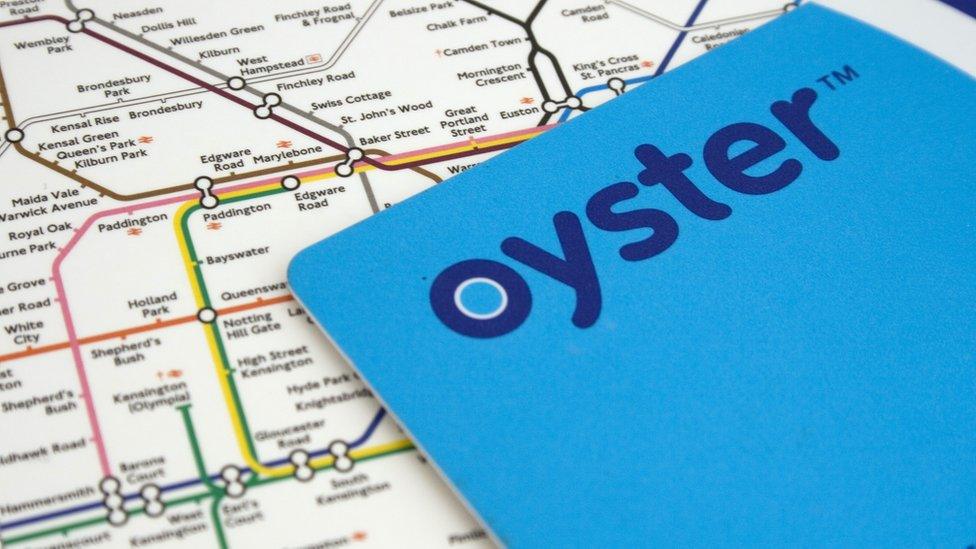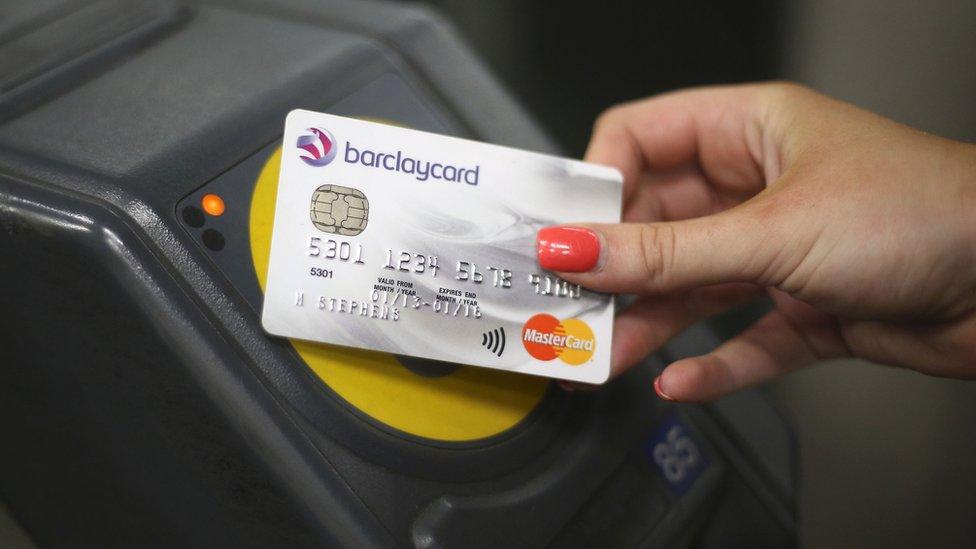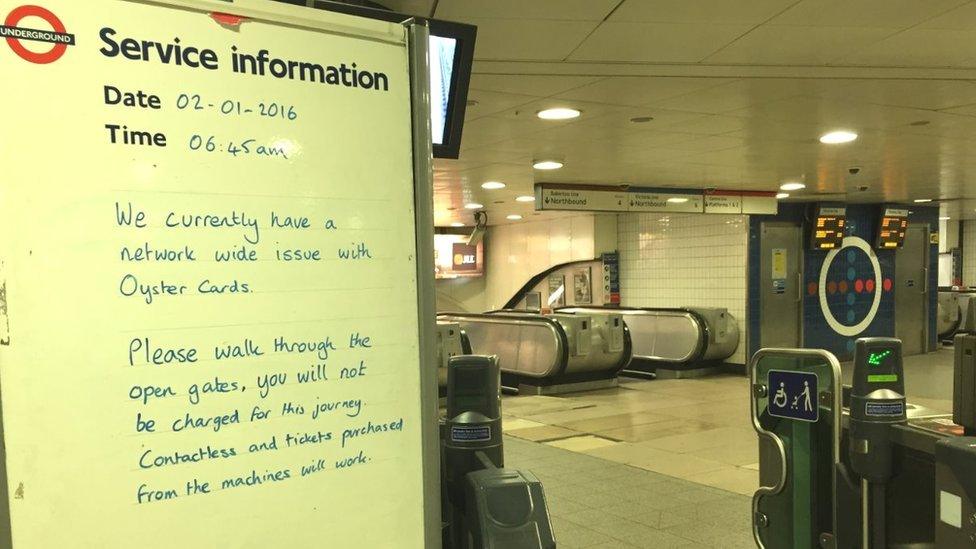Customers urged to claim £321m from dormant Oyster cards
- Published

More than 100 million people have used Oyster cards since they were launched 15 years ago
More should be done to remind Transport for London customers to claim £321m from "dormant" Oyster cards, a London Assembly member has said.
Liberal Democrat Caroline Pidgeon accused Transport for London (TfL) of keeping "incredibly quiet" about the "cash mountain".
TfL said it is "committed" to helping passengers get their money back.
More than 100 million people have used the electronic travel cards since they were launched 15 years ago.
More than £321m of balances and deposits are sitting on Oyster cards that have not been used for at least a year, TfL figures show.

Contactless payments are thought to have contributed to a reduction in Oyster card use
Ms Pidgeon, chair of City Hall's transport committee, put the "soaring" figure partly down to the number of people switching in recent years to making contactless payments with their bank cards.
She said: "TfL never stops bombarding us with advertisements and information campaigns, but highlighting this cash mountain is one issue that they remain incredibly quiet about.
"It is time TfL devoted far more time and energy telling the public how they can get their own money back."
Oyster cards can be used to pay for journeys by Tube, rail, bus, boat and cable car.
The card system costs TfL millions a year to administer, while contactless payments are run by banks.
TfL's chief technology officer, Shashi Verma, said people can reclaim their money "whenever they wish" from Tube ticket machines, at information desks or by calling the customer service team.
"We're committed to ensuring that our customers can get back the credit on their Oyster cards if that is what they want," he said.
"The Oyster card is an essential part of London and we're delighted with how popular this innovation has become in the last 15 years."
- Published2 January 2016

- Published17 March 2015